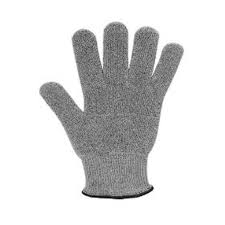记忆方法
1. g + love => 哥哥爱戴手套装酷。
中文词源
glove 手套
来自德语。来自ge-, 强调,词源同game. *lap, 平的,手掌,可能同flat, plan.
英语词源
- glove
-
glove: [OE] Not surprisingly, most words for ‘glove’ in European languages are related in some way to words for ‘hand’; German handschuh and Dutch handschoen, for example, mean literally ‘handshoe’; Greek kheirís was derived from kheíris ‘hand’; and Romanian manusa was based on Latin manus ‘hand’. And glove appears to be no exception; it probably goes back to a prehistoric Germanic *galōfō, in which *ga- was a collective prefix and lōfō meant ‘hand’ (Swedish dialect loof ‘palm of the hand’ comes from it).
- glove (n.)
- Old English glof "glove, covering for the hand having separate sheaths for the fingers," also "palm of the hand," from Proto-Germanic *galofo "covering for the hand" (cognates: Old Norse glofi), probably from *ga- collective prefix + *lofi "hand" (cognates: Old Norse lofi, Middle English love, Gothic lofa "flat of the hand"), from PIE *lep- (2) "be flat; palm, sole, shoulder blade" (cognates: Russian lopata "shovel;" Lithuanian lopa "claw," lopeta "shovel, spade").
German Handschuh, the usual word for "glove," literally "hand-shoe" (Old High German hantscuoh; also Danish and Swedish hantsche) is represented by Old English Handscio (the name of one of Beowulf's companions, eaten by Grendel), but this is attested only as a proper name. Meaning "boxing glove" is from 1847. Figurative use of fit like a glove is by 1771. - glove (v.)
- "to cover or fit with a glove," c. 1400, from glove (n.). Related: Gloved; gloving. Old English had adjective glofed. Glover as a surname is from mid-13c.
权威例句
- 1. The UN inspectors work hand in glove with the Western intelligence agencies.
- 联合国观察员和西方情报机构之间密切合作。
- 2. It was time to consign his bat and glove to the cupboard.
- 该把他的球棒和手套搁进柜子里了。
- 3. She was repairing a glove when I came in.
- 我进去时,她在补手套.
- 4. I think that she has an iron hand in a velvet glove.
- 我认为她是一个外柔内刚的人.
- 5. The terrorists are working hand in glove with the drug traffickers.
- 恐怖分子与毒品贩子相互勾结.

